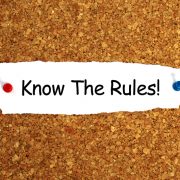President Trump Signs Executive Order that Could Ultimately Benefit Self-Directed IRA Savers
President Donald Trump signed an executive order recently to increase access to employer-sponsored retirement plans, which include the popular 401(K)s. By signing the order, President Trump has instructed the Departments of Labor and Treasury to explore methods to improve notice requirements, which would lessen the burden on small businesses and reduce paperwork for Self-Directed IRA savers.
Right now, 47% of workers at companies that employ fewer than one hundred do not have an employer retirement savings plan. The main reason for the executive order is to entice more small companies to offer sponsored plans to their employees. It also directs his administration to make it easier for small businesses to band together to set up retirement-savings plans.
Here of the main points that the President is asking Labor and Treasury to study and offer new rules:
Make retirement plans more amenable to smaller companies
By cutting some of the administrative burdens and costs that might be preventing smaller businesses from providing 401(K) plans, President Trump is hoping that more of their workers will be able to accumulate funds for retirement through a tax-advantaged vehicle.
Preston Rutledge, an assistant secretary of labor for the Employee Benefits Security Administration, explains: “We will try to find policy ideas that will make joining a 401(K) plan a more attractive proposition for small employers to the ultimate benefit of their employees.”
Expand criteria for multiple-employer plans
Larger corporations have the financial resources to take on the costs of retirement plans or at least they can spread them out over a more substantial number of workers. Multi-employer retirement plans can do the same thing for smaller businesses by allowing them to pool their resources, reducing their costs and affording them the opportunity to hire professionals to manage and advise them on the investments within the plan.
As it stands now, companies that make up a pool must share common characteristics, such as being in the same industry. This requirement is one that could change in the future so that more companies could participate.
Change the rules on required minimum distributions (RMDs)
In case you were not aware of it, you are required to begin withdrawing a certain amount of money from your retirement account each year when you turn 70½. It is called a required minimum distribution, or RMD. The RMD rules apply to tax-deferred accounts and include the following:
- Traditional IRAs
- Rollover IRAs
- Self-Directed Simple IRAs
- Self-Directed SEP IRAs
- Most 401(K) and 403(b) plans
There are strict deadlines for making the withdrawal and steep penalties for missing them—50% of the amount that was not taken on time!
The executive order asks the Department of the Treasury to review the rules on required minimum distributions to see if retirees should be allowed to keep more money in 401(K)s and Individual Retirement Accounts past 70 ½. It would seem to make sense since the average life expectancy has risen considerably over the years since the original RMD age was put into place.
Bear in mind that you can eliminate the RMD by converting your taxable IRA to a Roth IRA. You will not be forced to take distributions, and your beneficiaries might not ever be required to pay tax on their distributions either.
If enacted, these rule changes could have a significant impact on your retirement planning, so stay tuned for updates.
Also, at some point, you will want to roll over your 401(K) into an IRA. When you are ready, give us a call. A Self-Directed IRA gives you the options you need for a prosperous retirement. In today’s financial environment you need what a Self-Directed IRA can provide—higher returns and diversification for your portfolio from alternative investments that you can’t get with a Traditional IRA.
Interested in learning more about Self-Directed IRAs? Contact American IRA, LLC at 866-7500-IRA (472) for a free consultation. Download our free guides or visit us online at www.AmericanIRA.com.











